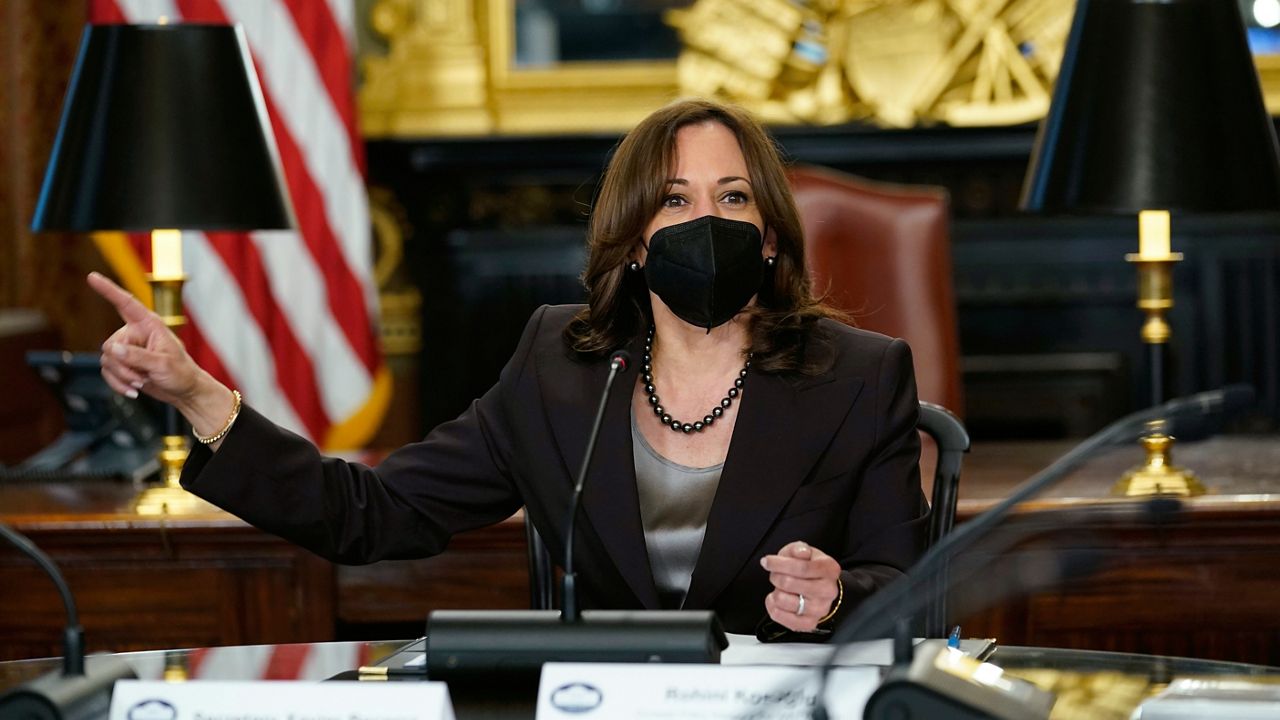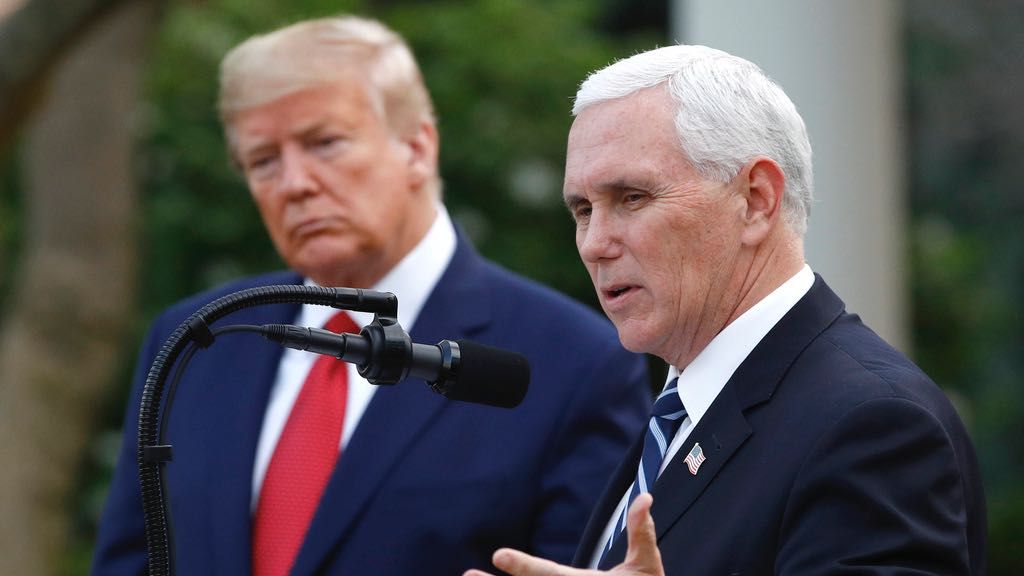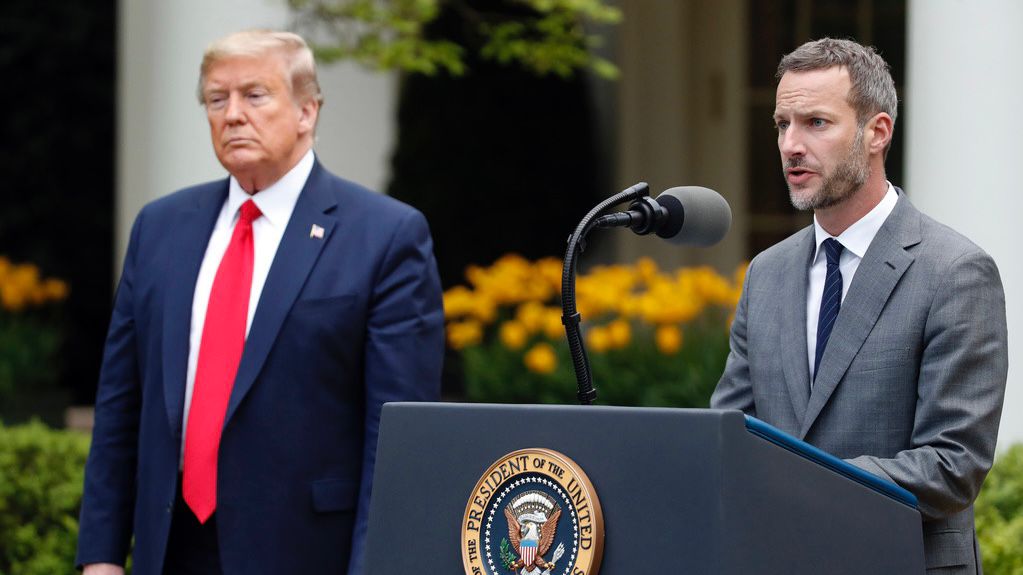Vice President Kamala Harris on Wednesday hosted a meeting with Cabinet officials on maternal health in an effort to make progress on the “whole-of-government approach to addressing maternal mortality and morbidity,” the White House said in a statement.
The meeting, which came during Black Maternal Health Week, included HHS secretary Xavier Becerra, HUD secretary Marcia Fudge, OMB director Shalanda Young and CMS administrator Chiquita Brooks-LaSure, among others. Black Maternal Health Week began in 2017 as an effort to raise awareness about Black and minority health issues, as non-white Americans face higher rates of maternal health issues than White Americans.
Overall, the United States’ rate of pregnancy-related death is more than 17 per 100,000 births, according to the Commonwealth Fund, compared to half that in countries like Canada and France and rates as low as three or less in comparable nations like the Netherlands, New Zealand and Norway
“The issue of maternal health in America, as you all know, it is something that all communities are deeply impacted by and concerned about,” Harris said to administration officials gathered Wednesday. “But this is the first time that any administration has, at this level, convened the Cabinet, the President's Cabinet to address this issue, as a priority not only for our administration, but as a national priority.”
The Biden-Harris administration also announced a number of actions to address maternal health, particularly for those in minority groups.
According to the Centers for Disease Control and Prevention, Black women are three times more likely to die in childbirth than White women, which the CDC attributes to a multitude of factors, including structural racism, implicit bias, varied access to adequate health care and underlying conditions. Native American women are also 2.3 times more likely to die from pregnancy-related complications than their white counterparts.
The Centers for Medicare & Medicaid Services are working with 11 states, plus Washington, D.C., to expand postpartum coverage for new mothers to a full year after they give birth. Louisiana, Virginia, New Jersey and Illinois already offer such services to patients. The new states hoping to elongate postpartum healthcare coverage are California, the District of Columbia, Indiana, Kentucky, Maine, Michigan, Minnesota, Oregon, New Mexico, South Carolina, Tennessee, and West Virginia.
Should the efforts be successful, up to 720,000 people could benefit from guaranteed Medicaid and Children’s Health Insurance Program coverage for 12 months after birth. Typically, mothers are covered for a minimum of 60 days after birth.
“What we also know is that this is an issue that is not just about health care, it is about treating a woman as a whole human being,” Harris said. “Understanding that if we are to expect and actually influence positive outcomes on this issue, we must see her then as a whole human being. Which is why we have gathered the leaders that are here today. So that we can address issues such as the issue of housing, [...] such as transportation, such as nutrition, which all have an impact on not only the experience that she will have and therefore her family will have, but also a generational impact.”
The administration will also work with CMS to identify hospitals that are “Birthing-Friendly,” or those that can prove they “participated in maternity care quality improvement collaboratives and implemented best practices that advance health care quality, safety, and equity for pregnant and postpartum patients,” the White House said in a statement. The CMS will, initially, use publicly available information from each year’s Maternal Morbidity Structural Measure to determine which hospitals meet the threshold.
The reporting period for hospitals began in October 2021, and CMS will receive the information and assess it for the first time in May 2022; the agency will release the next Maternal Morbidity report in fall 2022 and will post which hospitals received a “Birthing-Friendly” designation come fall 2023.
The agency will expand the criteria for the designation, which will appear on a CMS website, in the future. The program aims to help expecting mothers and parents choose between hospitals by showcasing relevant, easy-to-access information on an online hub.
“We are going to proactively look to how well the healthcare delivery system is doing on this very issue, and then designate those who are doing well,” Harris said of patient services. “And by inference, point out those who have more work to do.”
The administration also announced a series of investments for the Maternal, Infant, and Early Childhood Home Visiting Programs and State Maternal Health Innovation and Implementation Programs, the former of which will receive $16 million across eight states in order to address health disparities and to drive new technologies that can improve the quality of living for parents and their young children.
The SMH program will receive $9 million to be used to “deliver high-quality maternity care services and provide training for maternal care clinicians,” per the White House.
Wednesday’s announcements build on those rolled out by the Biden-Harris administration in December. At the time, the Department of Health and Human Services released $4.5 million to hire, train and certify doulas, focusing in regions of the country with particularly concerning rates of mother and infant health outcomes.
The administration also called on the private sector to invest in maternal health initiatives. Companies including CVS, DoorDash, Lyft, Pampers and Uber subsequently announced a number of efforts. DoorDash, for example, pledged to extend its partnerships with CARE and the Homeless Prenatal Program through 2022 to deliver food and other essential items to unhoused mothers or pregnant individuals.
Spectrum News' Austin Landis contributed reporting to this article.








_crop)